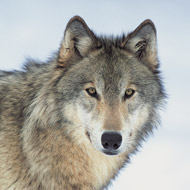Domestic dogs traced to Asia

Dogs were domesticated over 15,000 years ago but the precise time and location that this domestication occurred is the subject of hot debate.
The first domestication of dogs may have occurred in central Asia, not Europe as previously thought, according to a new study led by Cornell University.
Researchers studied DNA from over 5,000 living dogs around the world, including 549 free-ranging 'village dogs' that live around human settlements.
Lead author Adam Boyko is quoted by the New Scientist as saying: "This is the first global study of genomic patterns of dog diversity.
"We find a clear pattern of genetic diversity focused on central Asia, suggesting the first domesticated dogs came from this region."
Dogs were domesticated over 15,000 years ago but the precise time and location that this domestication occurred is the subject of hot debate.
Earlier studies have pinpointed Europe, but more recent research puts the location in southern China.
However, scientists now say they have found strong evidence that domestication occurred in central Asia, possibly near modern-day Mongolia and Nepal.
The full paper has been published in PNAS: http://www.pnas.org/content/early/2015/10/14/1516215112



 The Veterinary Medicines Directorate (VMD) is inviting applications from veterinary students to attend a one-week extramural studies (EMS) placement in July 2026.
The Veterinary Medicines Directorate (VMD) is inviting applications from veterinary students to attend a one-week extramural studies (EMS) placement in July 2026.